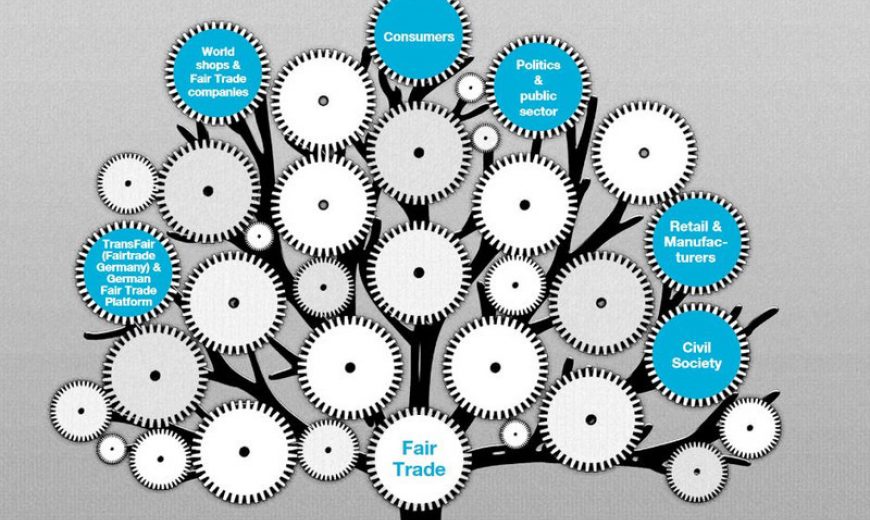2 Mar 2017
Fairtrade Changes Society
Fairtrade not only has an impact on the lives of farmers and workers in the Global South. According to a new study, it also plays a role in changing consumer patterns and behaviour.

The study “Does Fair Trade Change Society?”, commissioned by Fairtrade Germany and other key German fair trade actors, examines the impact of fair trade in Germany between 2000 and 2015. The researchers not only looked at the strong growth in fair trade sales, but also key societal areas such as impact on perceptions, behaviour, public procurement and education. In each of these areas there is a clear positive trend towards changed behaviour and awareness. The study concludes that the fair trade movement, through its public engagement, education and advocacy work, has contributed towards this change.
One of the most visible changes is the increased availability of fairly traded products, both in terms of variety of products, and number of places sold. Sales have also increased rapidly, especially since the middle of the 2000s, due to factors including the increased availability of products and greater awareness among new consumer groups.
The study also points out areas where there is still potential for change. Unfair trading practices still occur in the German retail food sector. Also, despite positive trends, consumers and public procurement bodies are not consistent in applying social factors when making their purchasing decisions. Additionally there is further regulatory scope at the international, European, and national levels to establish frameworks fostering equality in global trade and sustainable development. The study also recommends that the fair traded movement increases its collaboration, both within the movement, and with other civil society actors.
The study was conducted by research institute CEval between September 2015 and September 2016, on behalf of TransFair e.V. (Fairtrade Germany), Engagement Global, Brot für die Welt, Forum Fairer Handel und MISEREOR, with financial support from the Friedrich Ebert-Stiftung.
Read the short English version (2.5 MB PDF)
Download the full German report from the CEval website (3.1 MB PDF)